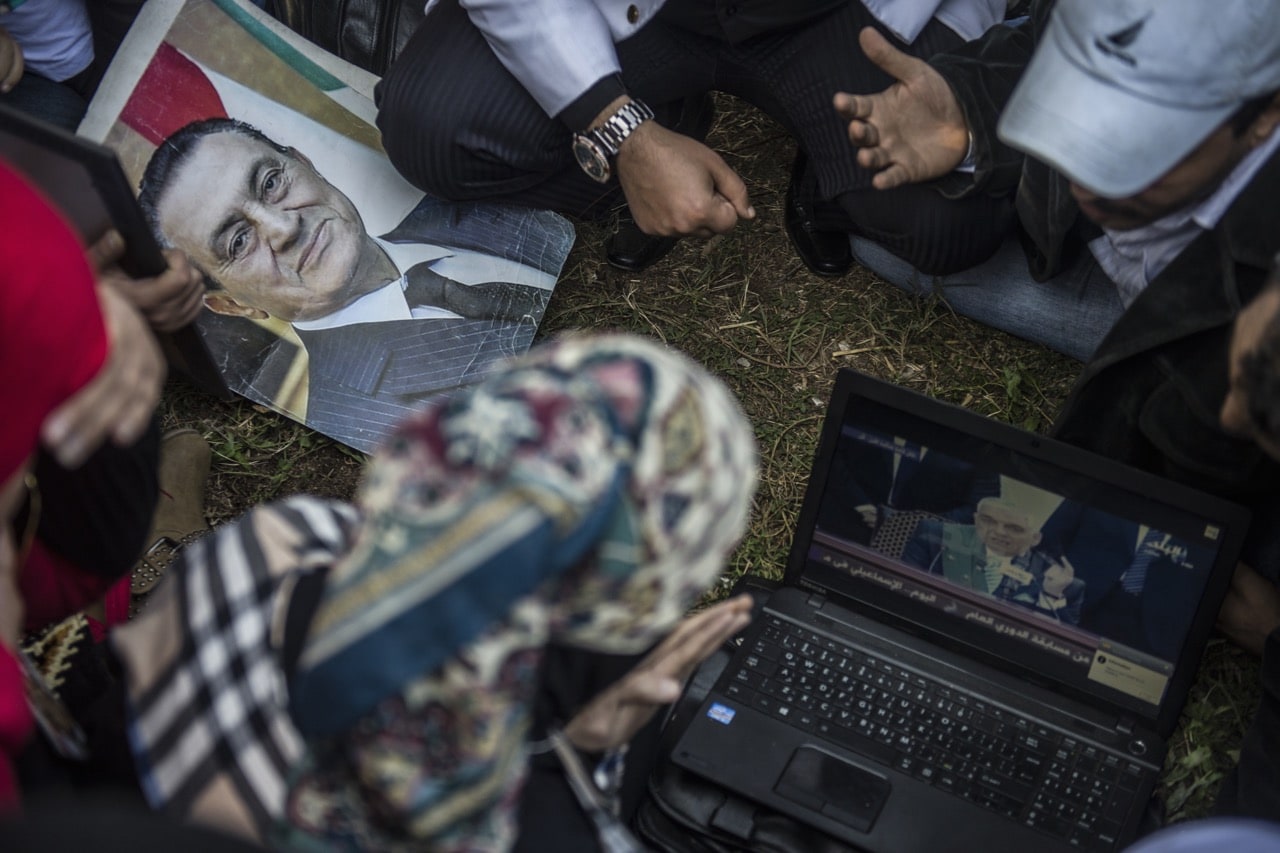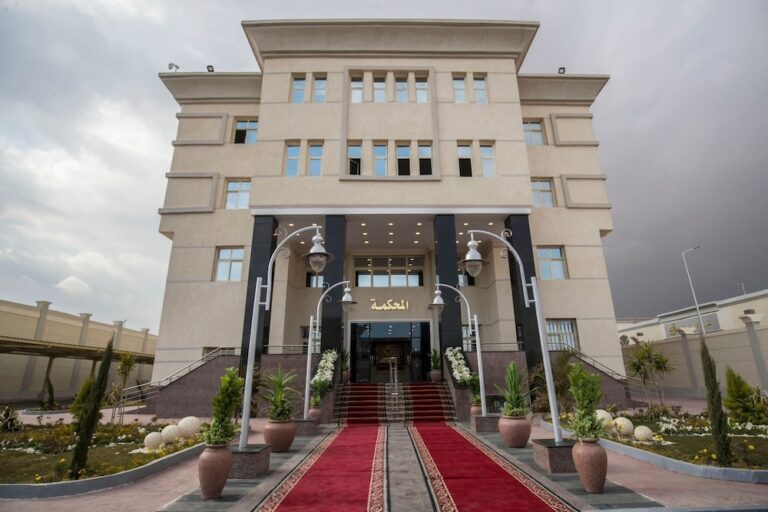Amira Abdelhamid shares her thoughts on how legislation is being used to close civic space in Egypt.
How would you describe the state of freedom of expression in Egypt today?
Successive Egyptian governments have attempted to, and succeeded in closing the physical public space. Threats to national security are immediately invoked in the official discourse and on different media platforms, in particular concerning protests and efforts to mobilise around human rights principles.
Laws such as the protest law of 2013 and the state of emergency that was declared in April 2017 enabled the complete closure of the very little space that was left for direct action and free speech. More recently, the government has continued its crackdown on free speech and expression in the virtual sphere, where Egypt witnessed a surge in the number of individuals prosecuted for expressing their opinions online.
This has meant that the Association for Freedom of Thought (AFTE) has concentrated more attention and resources to monitor and document these cases, provide legal support to the victims, and publish in-depth analyses of the implications of this online crackdown.
Activists who use the internet as a means of voicing their views against the current regime continue to be held under pre-trial detention. Blogger Wael Abbas is one of the most prominent of these activists [note: Abbas was released on 11 December during the exchange], as well as activist Amal Fathi, who was sentenced to two years in prison in September of this year, after posting a video on her Facebook account criticising the government’s inaction on the epidemic of sexual harassment in Egypt.
There has been a systematic effort by the government to legalise such rights violations. President Sisi ratified four new laws, with the aim of controlling the media and the internet. It is apparent that the practices of the current regime are no longer limited to restricting opposition protests, they also prevent any opposition to amending the Constitution to allow Sisi to remain in power.
How are these laws being used to crack down on freedom of expression?
The internet is being constructed, both legally and socially, as a threat to national security and to the national fabric of Egyptian society. Human rights defenders and activists are attempting to counter these practices and discourses, whether through direct litigation on the unconstitutionality of the recently enacted laws, or through circumventing the restrictive enforcement of these laws.
We expect that these laws will severely affect freedom of information and digital rights as follows:
In accordance with Article 7 of the Cybercrimes Act, investigating authorities have the power to order the blocking of websites. The police may also request the blocking of websites from the National Telecom Regulatory Authority (NTRA).
Article 2 of the same law obliges telecommunications companies to save and store customer usage data for a period of 180 days. This includes user-identifiable data, data on the content and type of information system, and those relating to the flow of use and the devices used. This means that service providers will be able to know of user practices, including phone calls and text messages, websites visited, and applications used.
The article also requires service providers to commit to the maintenance of “other data”, if a request is made by the NTRA Board of Directors. This means that telecommunication service providers may be obliged to save data not provided for in the Act. The same article gives national security bodies the authority to access these data, and obligates service providers to provide the technical facilities for this. The law defines National Security bodies to include the Presidency, the Armed Forces, the Ministry of the Interior, the General Intelligence and the Administrative Oversight Authority.
Article 24 of the law also allows for the monitoring of parody pages and accounts described in the article as “the fabrication of websites, special accounts and e-mail”. If found guilty, the penalty may be up to three months in jail and/or a fine of between EGP10,000 (USD 558) and EGP30,000 (USD 1,675), even if no ‘harm’ is caused. In cases of ‘harm’, the penalty is at least one year in jail, and/or a fine between EGP50,000 (USD 2,792) and EGP200,000 (USD 11,168). If the defendant falsely attributes an email, website or artificial private account to a public legal person, such as government ministries, agencies and companies, the penalty shall be imprisonment and a fine between EGP100,000 (USD 5,584) and EGP300,000 (16,752) even if this does not result harm.
Are non-Egyptians also affected?
They can be. On May 31, 2018, security forces arrested Lebanese citizen Mona Mathbouh before she left the country for publishing a video on social media criticising the epidemic of sexual harassment. Prosecutors charged Mathbouh with directing abuse at the Egyptian people by publishing a video on her Facebook page that contains words and phrases punishable by law.
On June 7, the Heliopolis Court of Misdemeanour initially sentenced Mathbouh to 11 years for publishing a ‘vulgar’ video of contempt and defamation of religions, but immediately reduced the sentence to eight years. The Heliopolis court of appeal then reduced the sentence to a suspended one year, with a fine of EGP10700, on 9 September 2018.
How difficult is it to circumvent the blocking?
AFTE recently published a report on ways to bypass the blocking. Several blocked websites that provide news and media content began to use other platforms, such as Facebook. Some other websites have used alternative links to their content through proxy servers. Others re-publish their content on platforms such as Medium. A number of websites have also sought to change their domain name to another that is not blocked, but in most cases, the alternative domains have been blocked as well.
Another tactic is using Accelerated Mobile Pages (AMP). If a website uses AMP, an alternative link will show up in a Google search if it is blocked. This is the method adopted by some blocked websites in Egypt, where the links produced by AMP were used and disseminated on social networks to reach the public, with no need for technical expertise.
Unfortunately, the Egyptian government resorted to blocking AMP on 3 February 2018. Consequently, Google suspended the service in Egypt. The government also continued to block VPN and proxy websites, as well as Tor network services.
What about the future? Has the government succeeded in closing civic space in the years to come?
While the laws discussed above have a deep impact on the way we express ourselves and form our identities in Egypt, and while it is true that counter-revolutionary laws, practices and discourses have taken the lead in recent years, new platforms of free expression are opening up.
For me, the 2011 Uprising created the space, more internally than outwardly, to critically assess and question anything taken for granted. It is true that deeming certain political action and certain kinds of expression as corrupt or as un-Egyptian – a ‘national security threat’ – has performed a large-scale repressive function; however, Egypt is such a diverse place, it is really difficult to force homogeneity on it.
The subtle ways people respond to and resist state power matter in more fundamental ways than grand revolutionary narratives and direct confrontation with security forces. In Egypt, and most certainly everywhere else, we are changing the internet, just as it changes us. Nascent virtual platforms are turning into creative hubs, creative in how they indirectly and unconventionally say ‘No!’.
Over the past years we have seen a flow of really interesting debates that develop online and traverse homes, streets, cafes and sometimes even translate into direct action. All sorts of discussions are emerging among family members, friends, and colleagues, critical of state and security logics. Some voices agree and others disagree, but the debate is ongoing, and regardless of how many cybercrime laws or enforced disappearances, the conversation continues.
But conversations are not the full story. People are also doing a lot more than what is being obscured by the dominance of official state discourse. Everyday, individuals and groups are forming their own communities and cultures, and the human rights movement has been central in safeguarding even a small sense of security and support. And Egyptians abroad, who may draw less attention, and are certainly under a lot less risk than those at home, are forging new alliances that speak to the overwhelming desire to change the Egyptian status quo.



